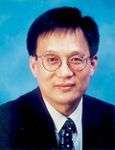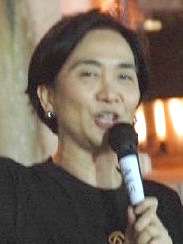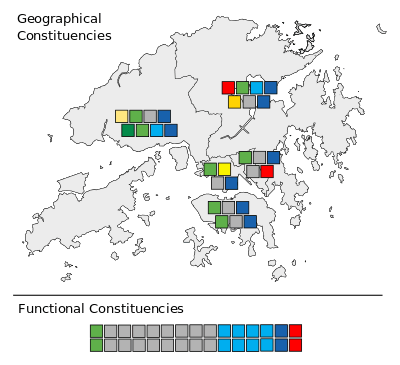Hong Kong legislative election, 2004
| |||||||||||||||||||||||||||||||||||||||||||||||||||||||||||||||||||||||||||||||||||||||||||||||||||||
All 60 seats to the Legislative Council | |||||||||||||||||||||||||||||||||||||||||||||||||||||||||||||||||||||||||||||||||||||||||||||||||||||
| Opinion polls | |||||||||||||||||||||||||||||||||||||||||||||||||||||||||||||||||||||||||||||||||||||||||||||||||||||
| Turnout |
55.64% (GC) | ||||||||||||||||||||||||||||||||||||||||||||||||||||||||||||||||||||||||||||||||||||||||||||||||||||
| |||||||||||||||||||||||||||||||||||||||||||||||||||||||||||||||||||||||||||||||||||||||||||||||||||||
|
Elected candidates by each constituency | |||||||||||||||||||||||||||||||||||||||||||||||||||||||||||||||||||||||||||||||||||||||||||||||||||||
| |||||||||||||||||||||||||||||||||||||||||||||||||||||||||||||||||||||||||||||||||||||||||||||||||||||
The 2004 Hong Kong Legislative Council election was held on 12 September 2004 for members of the Legislative Council of Hong Kong (LegCo). The election returned 30 members from directly elected geographical constituencies and 30 members from functional constituencies, of which 11 were unopposed.
A record number of 3.2 million people registered to vote in the election. The turnout rate was an unprecedented 55.6% with 1,784,406 voters casting ballots, beating the previous record set in 1998 by 200,000 votes.[1] While pro-democratic opposition candidates gained new seats in the legislature, their gains fell short of their expectations.
In the geographical constituencies, candidates from the pro-democratic camp secured 60 percent of the seats in the geographical sectors of the election, taking 18 seats (up from 17) in this category, and 62 percent of the popular vote. On the other hand, the pro-Beijing and pro-business candidates made greater gains, winning 12 directly elected seats (up from 7). Ironically, in the functional constituencies which the pro-democratic camp sought to abolish, the camp made more gains (from 5 to 7 seats).
Overall, the democrats took 25 seats and the pro-government camp 35 seats. Bills initiated by the government can still be passed on pro-government support alone, but bills originated by members cannot be passed without democratic support, since these bills require absolute majorities in each sector (geographical and functional) of the legislature.[2] Constitutional amendments require a two-thirds vote and thereby also require support from the democratic camp.
Despite the increase in the number of seats returned by geographical constituencies and the record turnout, the Democratic Party lost the status of being the largest political party in the Legislative Council to the pro-government Democratic Alliance for Betterment of Hong Kong, DAB, who secured 12 seats if including the two members who ran under the banner of the Hong Kong Federation of Trade Unions, and pro-business Liberal Party who secured 10 seats, thereby becoming only the third-largest party. Some attributed the poor performance of the pro-democratic camp to tactical miscalculation in vote allocation. This was not helped by some of the democratic parties' personal scandals.
The pro-Beijing and pro-business parties succeeded in retaining the majority in the legislature. However, pro-democracy candidates have maintained the threshold to block changes, if necessary, to the Basic Law of Hong Kong, since a two-thirds vote is required for amendment. The current Legislative Council also saw the entry of more radical members of the democratic camp.
Retiring incumbents
With the cancellation of the Election Committee constituency, there were total of twelve incumbents chose not to run for re-election. Ip Kwok-him lost his seat in the Central and Western District Council therefore was not qualified for running in the District Council functional constituency.
Opinion polling

Results
Before election:
| 22 | 38 |
| Pro-democracy | Pro-Beijing |
Change in composition:
| 25 | 35 |
| Pro-democracy | Pro-Beijing |
| Parties and allegiances | Geographical constituencies | Functional constituencies Seats gained |
Total seats gained | +/- | ||||
|---|---|---|---|---|---|---|---|---|
| Popular vote | % | Seats gained | ||||||
| Democratic Party | 445,988 | 25.19 | 7 | 2 | 9 | −2 | ||
| The Frontier | 121,900 | 6.89 | 1 | 0 | 1 | −1 | ||
| Article 45 Concern Group | 117,216 | 6.62 | 3 | 1 | 4 | +2 | ||
| Hong Kong Association for Democracy and People's Livelihood | 74,671 | 4.22 | 1 | 0 | 1 | ±0 | ||
| Hong Kong Confederation of Trade Unions | 69,844 | 3.95 | 1 | 0 | 1 | ±0 | ||
| April Fifth Action | 60,925 | 3.44 | 1 | 0 | 1 | +1 | ||
| Neighbourhood and Workers Service Centre | 59,033 | 3.33 | 1 | 0 | 1 | ±0 | ||
| Pro democracy individuals and others | 146,696 | 8.29 | 3 | 4 | 7 | − | ||
| Total for pro-democracy camp | 1,096,272 | 61.93 | 18 | 7 | 25 | +4 | ||
| Democratic Alliance for the Betterment of Hong Kong | 402,420 | 22.73 | 8 | 2 | 10 | ±0 | ||
| Liberal Party | 118,997 | 6.72 | 2 | 8 | 10 | +2 | ||
| Hong Kong Federation of Trade Unions | 52,564 | 2.97 | 1 | 2 | 3 | +2 | ||
| Hong Kong Progressive Alliance | 14,174 | 0.80 | 0 | 0 | 0 | −4 | ||
| New Century Forum | 4,511 | 0.25 | 0 | 0 | 0 | –1 | ||
| Pro-government individuals and others | 86,071 | 4.86 | 1 | 11 | 12 | − | ||
| Total for pro-Beijing camp | 660,052 | 37.29 | 12 | 23 | 35 | −4 | ||
| Non-partisan individuals and others | 13,866 | 0.78 | 0 | 0 | 0 | − | ||
| Valid votes | 14,216 | 0.80 | ||||||
| Total (turnout 55.64%) | 1,784,406 | 100.00 | 30 | 30 | 60 | ±0 | ||
| Source turnout: Electoral Affairs Commission. 11 candidates in 11 functional constituencies were elected unopposed to the Legislative Council. | ||||||||
Note: For the joint list of pro-democrats in Hong Kong Island, Kowloon East and New Territories East, the votes are divided equally to each candidate.
Overview
The election was largely seen as a contest between the pro-democracy coalition and the pro-business and pro-Beijing coalitions. There were 162 candidates for 60 seats in the LegCo. Before the election, the pro-democratic camp was widely expected to gain the most votes and increase its representation from 22 seats in the LegCo. Some members of the pro-democratic camp aimed at securing an absolute majority of the seats in the legislature so that they would have the power to veto all government proposals.
The democratic camp called for direct elections for the Chief Executive of Hong Kong in 2007 and for LegCo in 2008, as well as rapid political reform. In contrast, the pro-Beijing and pro-business candidates placed more emphasis on economic growth and social stability. Most of the political parties are now setting 2012 as the ideal time for electoral reform.
While the democratic camp hoped to play up the issue of universal suffrage as a prominent issue in the election, the Standing Committee of the National People's Congress ruled out universal suffrage for the Chief Executive election in 2007 and for LegCo elections in 2008 in April 2004 before the election. Despite this, the pro-democratic camp insisted on promoting their agenda, which seemed to backfire when the campaign lost its original momentum. This was not helped by various sex and financial scandals of a few pro-democracy candidates. There were some allegations by the pro-democracy camp of Mainland Chinese influence behind this.
Some of the developments include:
- Some reports in phone-in radio programmes that some officials in the Mainland requested businessmen to take photographs of their completed ballots with their mobile phones to prove that they have voted for pro-Beijing candidates. In response, the government removed curtains from polling booths to deter such activities.
- The entry into the election race of popular radio show host Albert Cheng, who had accused Beijing of pressuring him to leave his radio program.
- The arrest and sentence (by re-education through labour) of the Democratic Party candidate Alex Ho in Guangdong province of China for (allegedly) being caught and pictured in a hotel bedroom having relations with a prostitute. Although there were some initial predictions that Ho's arrest would help the Democratic Party by highlighting deficiencies in the PRC's judicial system, it is generally agreed that his arrest greatly hurt the party among women voter support in Hong Kong.
- The involvement of Democratic Party James To and The Hong Kong Federation of Trade Unions Chan Yuen-han in scandals relating to the use of public funds for the benefit of their respective political groups.
- Human Rights Watch issued a report a few days before the election, accusing the PRC government of creating a "climate of fear" to influence the election. In response, the Hong Kong government claimed that the report was distorted.
- The assault of a candidate of the Democratic Party in the New Territories East, Wong Sing-chi. The suspect was arrested and reportedly found to be mentally ill.
- The election of radical activist "Long Hair" Leung Kwok-hung, who ran as an independent but who is expected to side with pro-democracy representatives despite his revolutionary leanings.
Irregularities
There were a few reports of irregularities. Some polling stations ran out of ballot boxes, causing long delays in voting. To fit more ballots into the ballot boxes, some election workers forcefully stuffed ballots into the box using objects such as barbecue forks and metal rulers. Some stations also used random cardboard boxes without official seals. Some ballot boxes were opened before the close of polling.
The polling station operating manual had mistakes in it, so some candidate representatives were kicked out after the closing of the poll and were prevented from witnessing the counting, as required by law.
Some candidates have tried to challenge the election results, but have remained unsuccessful thus far.
A report on the election process was published shortly after the election.[1] Another report was commissioned by the government to suggest future improvements.[3]
Votes summary

Seat summary
Incumbents defeated
Eight incumbents lost re-election
| Party | Name | Constituency | Remarks | |
|---|---|---|---|---|
| Democratic | Wong Sing-chi | New Territories East | placed fourth on the list | |
| The Frontier/Civic Act-up | Cyd Ho Sau-lan | Hong Kong Island | placed second on the list; running for New Territories East constituency in the last election | |
| Independent | Andrew Wong Wang-fat | New Territories East | ||
| Lo Wing-lok | Medical | |||
| Kaizer Lau Ping-cheung | Architectural, Surveying and Planning | |||
| Michael Mak Kwok-fung | Health Services | |||
| Chan Kwok-keung | Labour | |||
| Wu King-cheong | Financial Services | |||
Candidate lists and results
Geographical Constituencies (30 seats)
Voting system: Party-list proportional representation with largest remainder method and Hare quota.
| Results of the Geographical Constituencies | ||||||||||||||||||||||||||||||||||||||||||||||||||||||||||||||||||||||||||||||||||||||||||||||||||||||||||||||||
|---|---|---|---|---|---|---|---|---|---|---|---|---|---|---|---|---|---|---|---|---|---|---|---|---|---|---|---|---|---|---|---|---|---|---|---|---|---|---|---|---|---|---|---|---|---|---|---|---|---|---|---|---|---|---|---|---|---|---|---|---|---|---|---|---|---|---|---|---|---|---|---|---|---|---|---|---|---|---|---|---|---|---|---|---|---|---|---|---|---|---|---|---|---|---|---|---|---|---|---|---|---|---|---|---|---|---|---|---|---|---|---|---|
| Hong Kong Island (香港島) | ||||||||||||||||||||||||||||||||||||||||||||||||||||||||||||||||||||||||||||||||||||||||||||||||||||||||||||||||
| ||||||||||||||||||||||||||||||||||||||||||||||||||||||||||||||||||||||||||||||||||||||||||||||||||||||||||||||||
| Kowloon West (九龍西) | ||||||||||||||||||||||||||||||||||||||||||||||||||||||||||||||||||||||||||||||||||||||||||||||||||||||||||||||||
| ||||||||||||||||||||||||||||||||||||||||||||||||||||||||||||||||||||||||||||||||||||||||||||||||||||||||||||||||
| Kowloon East (九龍東) | ||||||||||||||||||||||||||||||||||||||||||||||||||||||||||||||||||||||||||||||||||||||||||||||||||||||||||||||||
| ||||||||||||||||||||||||||||||||||||||||||||||||||||||||||||||||||||||||||||||||||||||||||||||||||||||||||||||||
| New Territories West (新界西) | ||||||||||||||||||||||||||||||||||||||||||||||||||||||||||||||||||||||||||||||||||||||||||||||||||||||||||||||||
| ||||||||||||||||||||||||||||||||||||||||||||||||||||||||||||||||||||||||||||||||||||||||||||||||||||||||||||||||
| New Territories East (新界東) | ||||||||||||||||||||||||||||||||||||||||||||||||||||||||||||||||||||||||||||||||||||||||||||||||||||||||||||||||
| ||||||||||||||||||||||||||||||||||||||||||||||||||||||||||||||||||||||||||||||||||||||||||||||||||||||||||||||||
Functional Constituencies (30 seats)
Voting systems: Different voting systems apply to different functional constituencies, namely for the Heung Yee Kuk, Agriculture and Fisheries, Insurance and Transport, the preferential elimination system of voting; and for the remaining 24 FCs used the first-past-the-post voting system.[4]
| Results of the Functional Constituencies | |||||
|---|---|---|---|---|---|
| Constituency | Incumbent | Result | Candidate(s) | ||
| Heung Yee Kuk | Lau Wong-fat (Liberal) |
Incumbent ran for DC FC Nonpartisan gain |
Lam Wai-keung uncontested | ||
| Agriculture and Fisheries | Wong Yung-kan (DAB) |
Incumbent hold | Wong Yung-kan (DAB) uncontested | ||
| Insurance | Bernard Charnwut Chan | Incumbent hold | Bernard Charnwut Chan uncontested | ||
| Transport | Miriam Lau Kin-yee (Liberal) | Incumbent re-elected | Miriam Lau Kin-yee (Liberal) uncontested | ||
| Education | Cheung Man-kwong (PTU/Democratic) | Incumbent re-elected | Cheung Man-kwong (PTU/Democratic) 82.94% Yu Kai-chun 17.06% | ||
| Legal | Margaret Ng Ngoi-yee (Independent) | Incumbent hold | Margaret Ng Ngoi-yee (Independent) 74.73% Kwong Ka-yin (Independent) 17.21% Judy Tong Kei-yuk (Independent) 8.06% | ||
| Accountancy | Eric Li Ka-cheung (Independent) | Incumbent retired Independent gain | Tam Heung-man (Independent) 29.05% Chan Mo-po (Independent) 28.74% Elve Kung Yiu-fai (Independent) 15.54% Edward Chow Kwong-fai 9.13% Louis Leung Wing-on (Independent) 5.17% Peter Chan Po-fun 5.16% Choi Sau-yuk (Independent) 3.80% Wilfred Wu Shek-chun 2.09% Wilfred Wong Wang-tai 1.32% | ||
| Medical | Lo Wing-lok (Independent) | Incumbent lost re-election Independent gain | Kwok Ka-ki (Independent) 50.88% Lo Wing-lok (Independent) 42.45% Johnny Ma Kam-chuen 6.67% | ||
| Health Services | Michael Mak Kwok-fung (Independent) | Incumbent lost re-election Independent gain | Joseph Lee Kok-long (Independent) 43.01% Michael Mak Kwok-fung (Independent democrat) 30.14% Scarlett Pong Oi-lan 14.27% Siu Kwai-fung (Independent) 12.58% | ||
| Engineering | Raymond Ho Chung-tai | Incumbent re-elected | Raymond Ho Chung-tai 57.29% Luk Wang-kwong 42.71% | ||
| Architectural, Surveying and Planning | Kaizer Lau Ping-cheung | Incumbent lost re-election Independent gain | Patrick Lau Sau-shing (Independent) 28.36% Kenneth Chan Jor-kin (Independent) 16.29% Kaizer Lau Ping-cheung 15.46% Roger Anthony Nissim (Independent) 13.73% Stanley Ng Wing-fai (Democratic) 13.23% Chan Yiu-fai (Independent) 12.93% | ||
| Labour (3 seats) | Li Fung-ying (Nonpartisan) | Incumbent re-elected | Li Fung-ying 32.43% Kwong Chi-kin (FTU) 29.00% Wong Kwok-hing (FTU) 28.00% Chan Kwok-keung 10.57% | ||
| Leung Fu-wah (FTU) | Incumbent retired FTU hold | ||||
| Chan Kwok-keung (DAB) | Incumbent lost re-election FTU gain | ||||
| Social Welfare | Law Chi-kwong (Democratic) | Incumbent retired Nonpartisan gain | Cheung Chiu-hung 39.01% Cheung Kwok-che (SWGU) 38.24% Christine Fong Meng-sang 22.75% | ||
| Real Estate and Construction | Abraham Shek Lai-him (Independent) | Incumbent hold | Abraham Shek Lai-him (Independent) uncontested | ||
| Tourism | Howard Young (Liberal) | Incumbent re-elected | Howard Young 48.20% Paul Tse Wai-chun 48.20% Freddy Yip Hing-ning 11.05% | ||
| Commercial (First) | James Tien Pei-chun (Liberal) | Incumbent ran for NTE GC Liberal hold | Jeffrey Lam Kin-fung (Liberal) uncontested | ||
| Commercial (Second) | Philip Wong Yu-hong | Incumbent hold | Philip Wong Yu-hong uncontested | ||
| Industrial (First) | Kenneth Ting Woo-shou (Liberal) | Incumbent ran for NTW GC Liberal hold | Andrew Leung Kwan-yuen (Liberal) uncontested | ||
| Industrial (Second) | Lui Ming-wah | Incumbent hold | Lui Ming-wah uncontested | ||
| Finance | David Li Kwok-po | Incumbent hold | David Li Kwok-po uncontested | ||
| Financial Services | Wu King-cheong | Incumbent lost re-election Nonpartisan gain | Chim Pui-chung 51.69% Christopher Cheung Wah-fung 17.29% Wu King-cheong 16.35% Fung Ka-pun (Liberal) 11.47% Fung Chi-kin (Progressive Alliance) 3.20% | ||
| Sports, Performing Arts, Culture and Publication | Timothy Fok Tsun-ting | Incumbent hold | Timothy Fok Tsun-ting 69.08% Lam Hon-kin (Democratic) 30.92% | ||
| Import and Export | Hui Cheung-ching (Progressive Alliance) | Incumbent retired DAB gain | Wong Ting-kwong (DAB) uncontested | ||
| Textiles and Garment | Sophie Lau Yau-fun (Liberal) | Incumbent re-elected | Sophie Lau Yau-fun (Liberal) 77.94% Kwan Kam-yuen 22.06% | ||
| Wholesale and Retail | Selina Chow Liang Shuk-yee (Liberal) | Incumbent ran for NTW GC Liberal hold | Vincent Fang Kang (Liberal) 46.85% Fung Leung-lo 36.66% Samuel Chan Tim-shing 16.49% | ||
| Information Technology | Sin Chung-kai (Democratic) | Incumbent re-elected | Sin Chung-kai (Democratic) 52.59% Tam Wai-ho 42.65% Leung Mun-yee (Independent) 4.76% | ||
| Catering | Tommy Cheung Yu-yan (Liberal) | Incumbent re-elected | Tommy Cheung Yu-yan (Liberal) 63.75% Josephine Chan Shu-ying 21.75% Wong Sin-ying 14.50% | ||
| District Council | Ip Kwok-him (DAB) | Incumbent retired Liberal gain | Lau Wong-fat (Liberal) 61.24% Cosmas Kwong Kwok-chuen (Democratic) 28.90% Au Chi-yuen 9.86% | ||
Notes
References
- 1 2 "2004 Legisilative Council Election" (PDF). Electoral Affairs Commission. Retrieved 19 February 2009.
- ↑ Sing, Ming (2009). Politics and Government in Hong Kong. Taylor & Francis.
- ↑ "Report of the Independent Committee of Experts for the Review on the Management, Planning and Conduct of Elections". Government Information Centre. 6 May 2005. Retrieved 19 February 2009.
- ↑ "2004 LegCo Election- Facts about the Election". Elections.gov.hk.









































